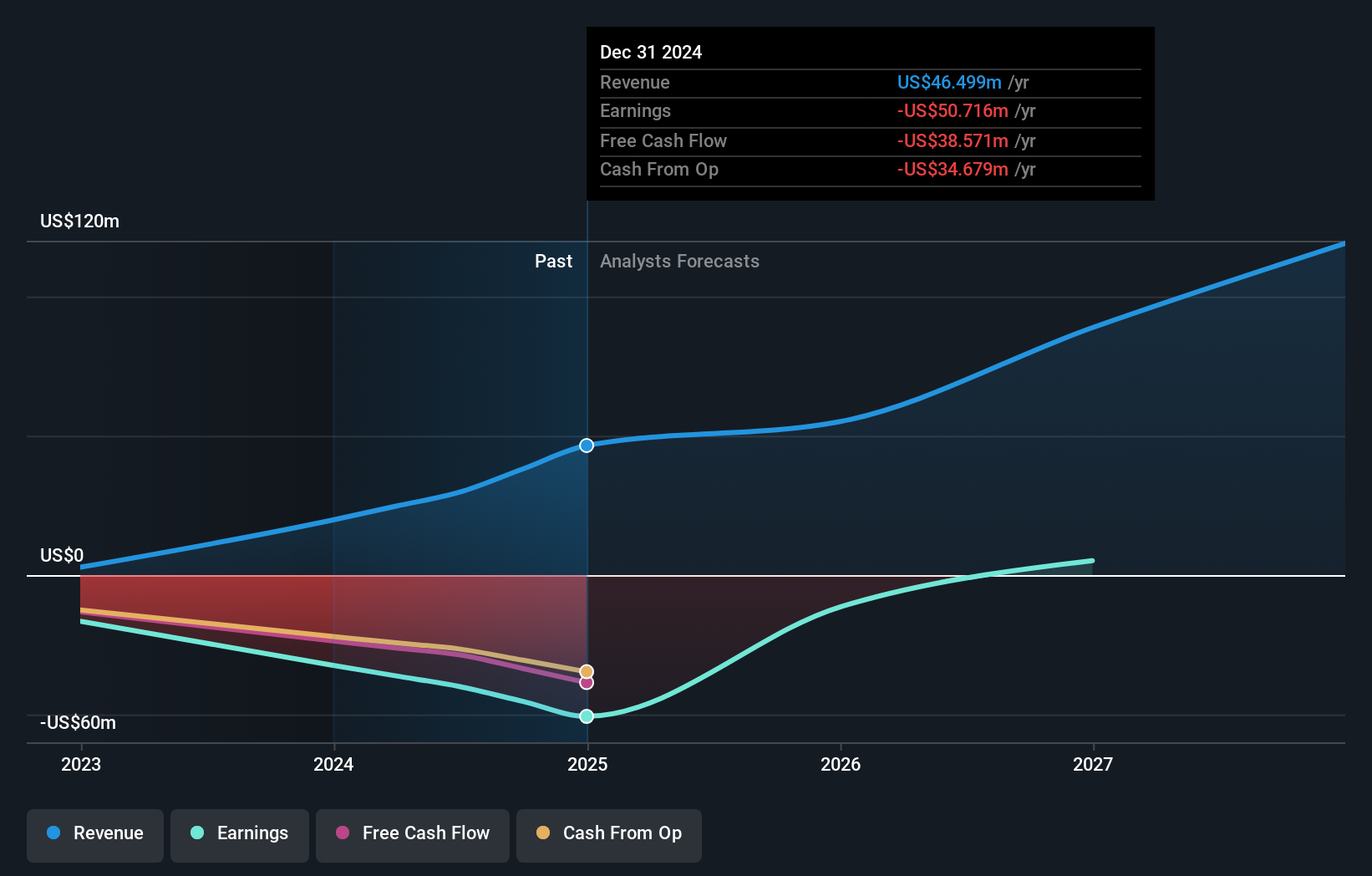RedCloud Holdings plc (NASDAQ:RCT) adds US$14m in market cap and insiders have a 65% stake in that gain
Key Insights
- Insiders appear to have a vested interest in RedCloud Holdings' growth, as seen by their sizeable ownership
- 60% of the business is held by the top 3 shareholders
- Using data from company's past performance alongside ownership research, one can better assess the future performance of a company
To get a sense of who is truly in control of RedCloud Holdings plc (NASDAQ:RCT), it is important to understand the ownership structure of the business. We can see that individual insiders own the lion's share in the company with 65% ownership. In other words, the group stands to gain the most (or lose the most) from their investment into the company.
As a result, insiders scored the highest last week as the company hit US$125m market cap following a 12% gain in the stock.
Let's delve deeper into each type of owner of RedCloud Holdings, beginning with the chart below.
See our latest analysis for RedCloud Holdings

What Does The Institutional Ownership Tell Us About RedCloud Holdings?
Institutions typically measure themselves against a benchmark when reporting to their own investors, so they often become more enthusiastic about a stock once it's included in a major index. We would expect most companies to have some institutions on the register, especially if they are growing.
Less than 5% of RedCloud Holdings is held by institutional investors. This suggests that some funds have the company in their sights, but many have not yet bought shares in it. If the business gets stronger from here, we could see a situation where more institutions are keen to buy. It is not uncommon to see a big share price rise if multiple institutional investors are trying to buy into a stock at the same time. So check out the historic earnings trajectory, below, but keep in mind it's the future that counts most.

RedCloud Holdings is not owned by hedge funds. The company's largest shareholder is Christina Byland, with ownership of 37%. Hans Kunz is the second largest shareholder owning 12% of common stock, and Nikolaus Senn holds about 12% of the company stock. Nikolaus Senn, who is the third-largest shareholder, also happens to hold the title of Member of the Board of Directors. Additionally, the company's CEO Justin Beck Floyd directly holds 2.4% of the total shares outstanding.
To make our study more interesting, we found that the top 3 shareholders have a majority ownership in the company, meaning that they are powerful enough to influence the decisions of the company.
While studying institutional ownership for a company can add value to your research, it is also a good practice to research analyst recommendations to get a deeper understand of a stock's expected performance. There is a little analyst coverage of the stock, but not much. So there is room for it to gain more coverage.
Insider Ownership Of RedCloud Holdings
The definition of company insiders can be subjective and does vary between jurisdictions. Our data reflects individual insiders, capturing board members at the very least. The company management answer to the board and the latter should represent the interests of shareholders. Notably, sometimes top-level managers are on the board themselves.
Most consider insider ownership a positive because it can indicate the board is well aligned with other shareholders. However, on some occasions too much power is concentrated within this group.
Our information suggests that insiders own more than half of RedCloud Holdings plc. This gives them effective control of the company. So they have a US$82m stake in this US$125m business. It is good to see this level of investment. You can check here to see if those insiders have been buying recently.
General Public Ownership
The general public, who are usually individual investors, hold a 30% stake in RedCloud Holdings. This size of ownership, while considerable, may not be enough to change company policy if the decision is not in sync with other large shareholders.
Next Steps:
I find it very interesting to look at who exactly owns a company. But to truly gain insight, we need to consider other information, too. Be aware that RedCloud Holdings is showing 2 warning signs in our investment analysis , you should know about...
But ultimately it is the future, not the past, that will determine how well the owners of this business will do. Therefore we think it advisable to take a look at this free report showing whether analysts are predicting a brighter future.
NB: Figures in this article are calculated using data from the last twelve months, which refer to the 12-month period ending on the last date of the month the financial statement is dated. This may not be consistent with full year annual report figures.
Have feedback on this article? Concerned about the content? Get in touch with us directly. Alternatively, email editorial-team (at) simplywallst.com.
This article by Simply Wall St is general in nature. We provide commentary based on historical data and analyst forecasts only using an unbiased methodology and our articles are not intended to be financial advice. It does not constitute a recommendation to buy or sell any stock, and does not take account of your objectives, or your financial situation. We aim to bring you long-term focused analysis driven by fundamental data. Note that our analysis may not factor in the latest price-sensitive company announcements or qualitative material. Simply Wall St has no position in any stocks mentioned.
Contact Us
Contact Number : +852 3852 8500Service Email : service@webull.hkBusiness Cooperation : marketinghk@webull.hkWebull Securities Limited is licensed with the Securities and Futures Commission of Hong Kong (CE No. BNG700) for carrying out Type 1 License for Dealing in Securities, Type 2 License for Dealing in Futures Contracts and Type 4 License for Advising on Securities.

English